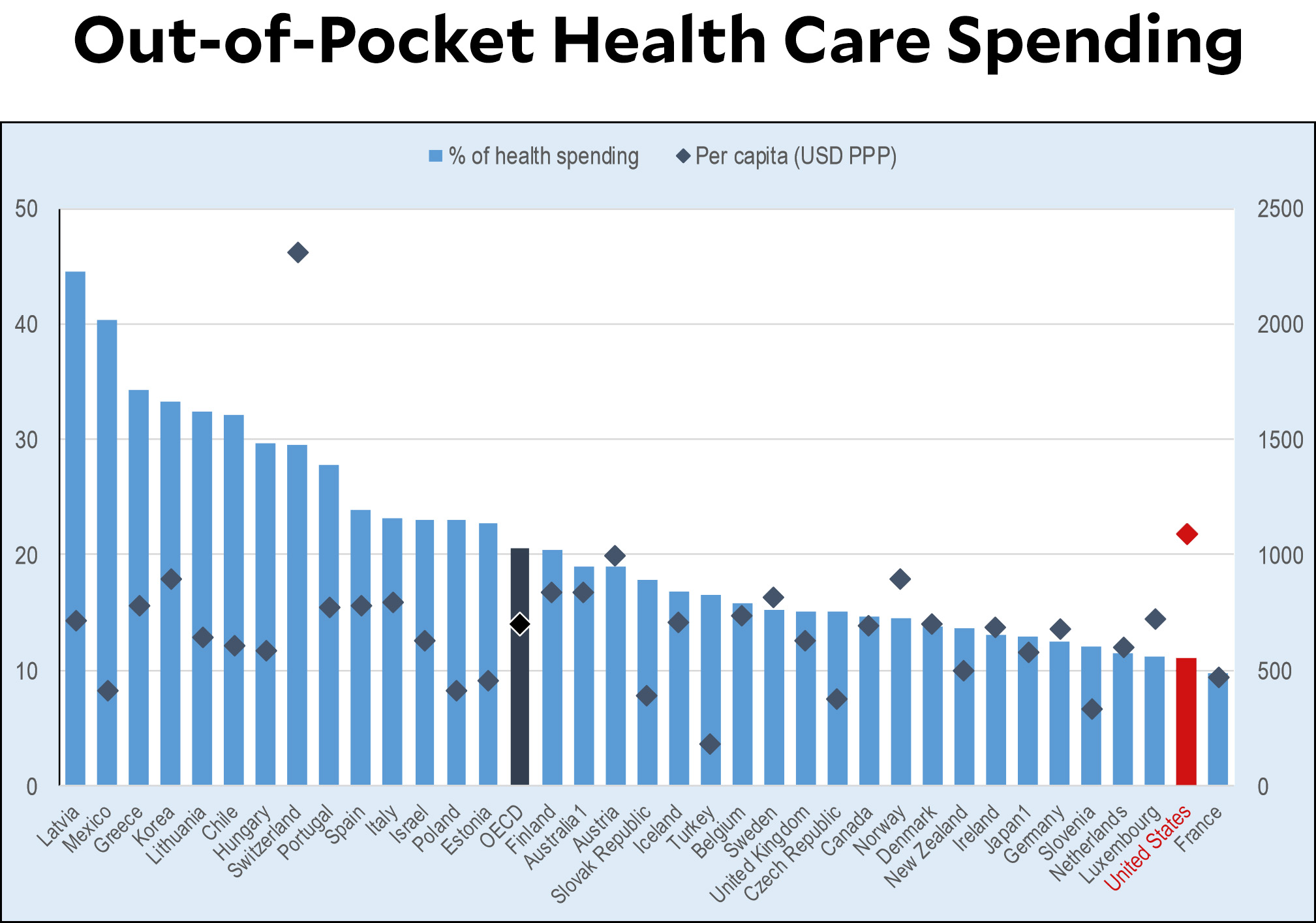Last night’s scrum over health care was a pretty good example of the narcissism of small differences. Among the candidates who are polling above 0 percent, there’s universal agreement that we need to move toward universal health care. The argument, roughly speaking, is over:
- How fast should the transition be?
- Should private insurers have no role or a small, regulated role?
- Should consumers have small deductibles and copays or no deductibles and copays?
There’s not really a whole lot more to it, and these are truly minuscule differences. But the truth is that Democrats don’t have an awful lot to argue about, so they have to turn molehills into mountains wherever they can. It’s the only way to stand out from the crowd.
For what it’s worth, I’d point out that most European countries adopted universal health care bit by bit, not via a single big bang; they vary in their use of private insurance; and they don’t pay 100 percent of health care costs. Here’s the latest OECD data on average out-of-pocket costs in rich countries:

On a percentage basis, the US is actually pretty good on this score. The problem is that our health costs are so high that even a low percentage of OOP spending translates into a pretty high absolute dollar amount. And needless to say, this chart shows only averages. The real problem with the American health care system is that it works OK if you’re not sick but turns brutal when you are. In other countries, your OOP spending is generally pretty limited no matter how high your bill. In the United States, conversely, a big bill can often turn into a household catastrophe.
In any case, while it’s fine to argue about the minutiae of different health care plans, we should all keep in mind that at its core this is a fairly technical policy discussion. You don’t lose your progressive membership card because you support one over another.













